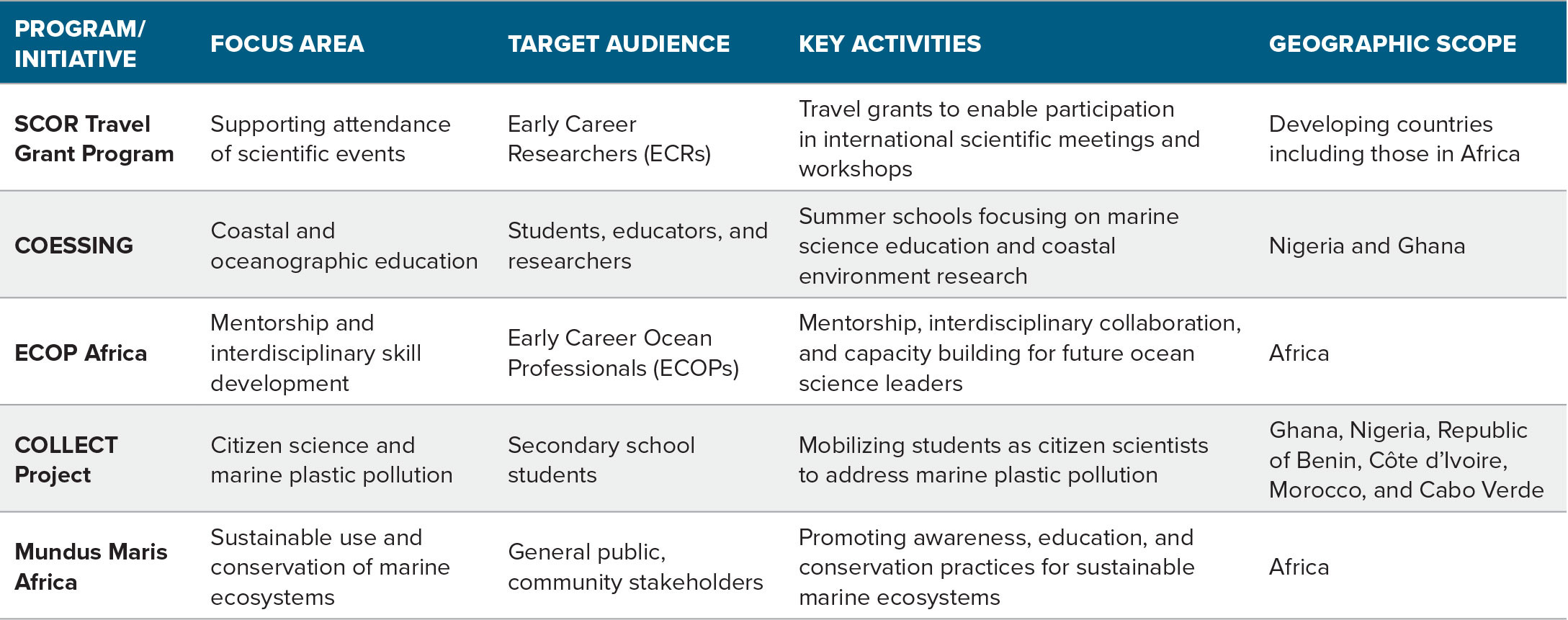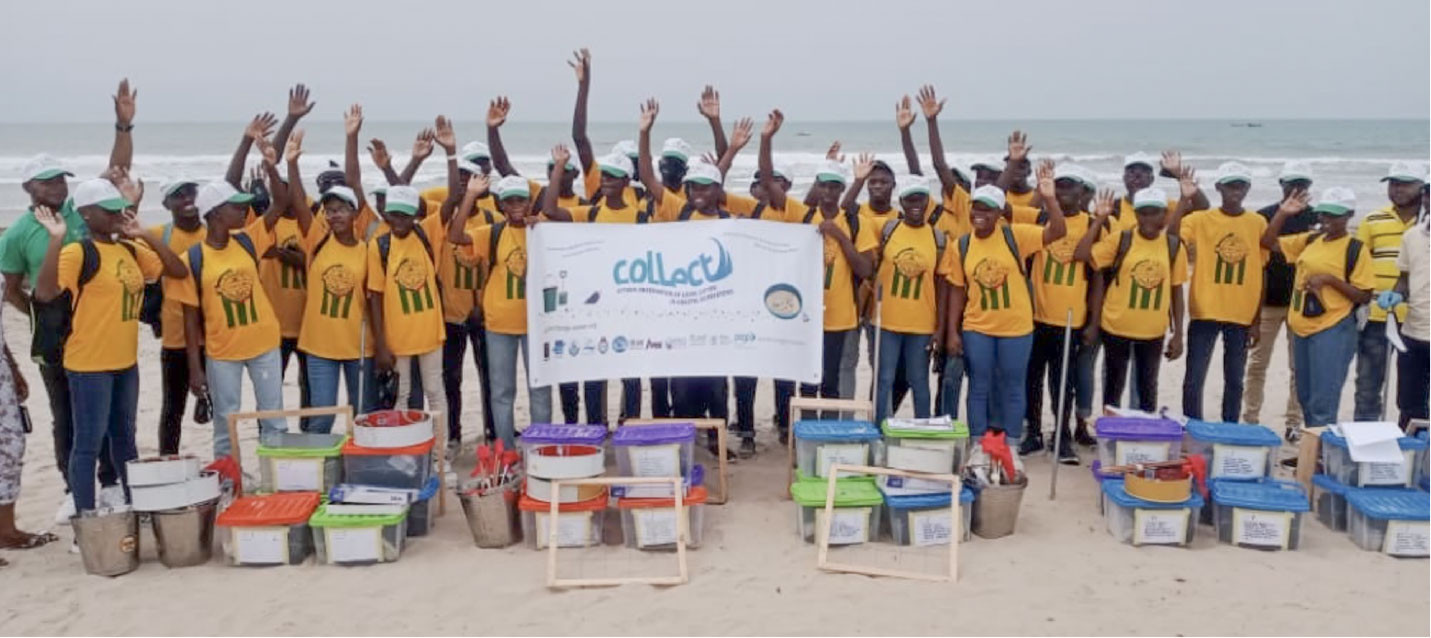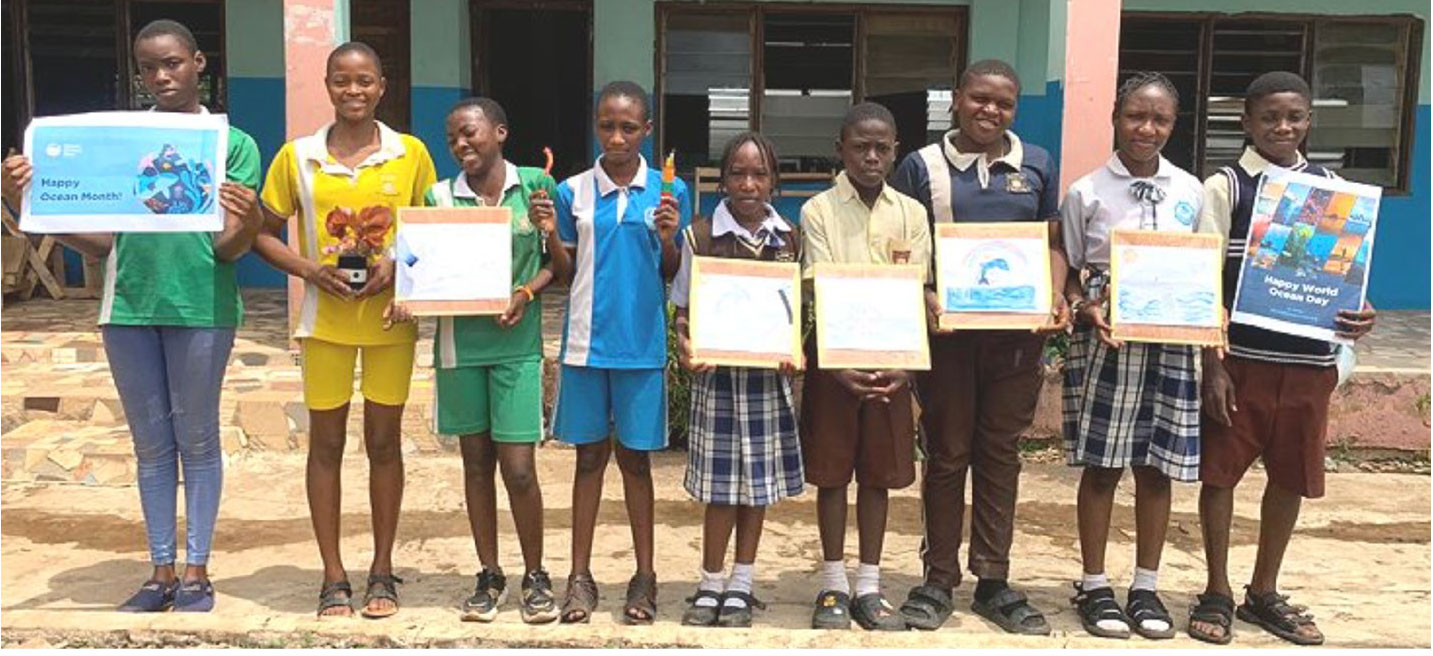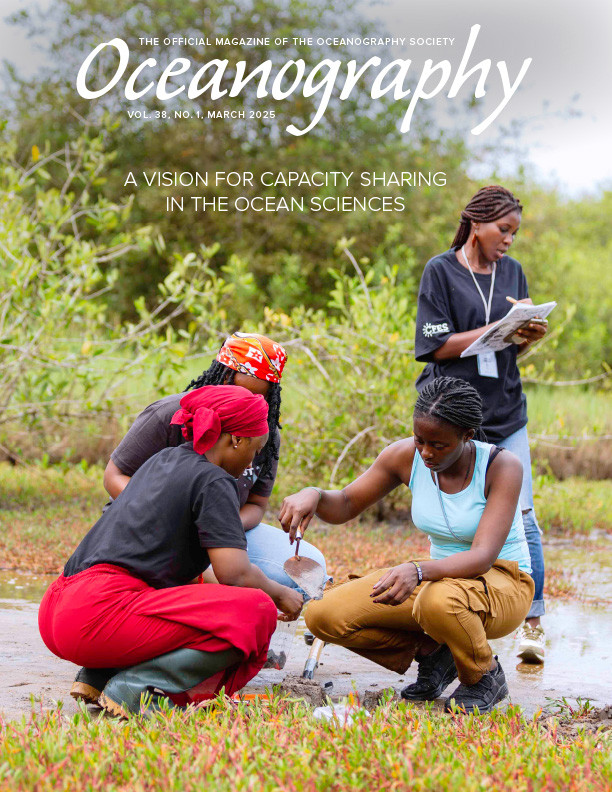Introduction
Capacity sharing in the ocean sciences is a cornerstone for addressing the environmental and societal challenges facing the world’s marine ecosystems. In Africa, where rich coastal and marine biodiversity intersects with mounting threats such as plastic pollution and climate change, empowering local communities and fostering knowledge exchange are critical to sustainable ocean stewardship. Despite global efforts to promote capacity in the marine sciences, disparities persist, with many countries, especially in the Global South, struggling to enhance their capacity for exploring the ocean (Leal et al., 2020; Zurba et al., 2023). Capacity development is essential for improving our knowledge of marine ecosystems, particularly in developing regions like Africa, which has large and mostly unexplored maritime zones (Pardo et al., 2020). Africa faces tremendous obstacles that get in the way of efficiently and sustainably using its maritime resources resulting form the capacity shortfall and its vast coasts and varied marine habitats. Inadequate human resources, technical shortcomings, and restricted access to cutting-edge research facilities hinder the continent’s comprehensive involvement in international marine scientific initiatives.
To overcome these challenges, cooperative initiatives in capacity building are essential. African countries can enhance their oceanographic research capacities by pooling resources, knowledge, and technology, leading to improved environmental monitoring, more effective marine resource management, and greater resilience against environmental challenges such as climate change and plastic pollution. Capacity building and development in Africa require a multi-faceted approach, including the creation of regional research networks, the exchange of information via international collaborations, and the creation of educational initiatives meant to foster the growth of local expertise.
The Scientific Committee on Oceanic Research’s (SCOR) travel grant program, which supports the capacity building of early career researchers (ECRs) from developing countries through participation in targeted capacity development opportunities, has been explored by some researchers (Urban and Seeyave, 2021; Twigg et al., 2025, in this issue). Similarly, the contributions of the Coastal Ocean Environment Summer School In Nigeria and Ghana (COESSING) have been highlighted in this issue (see Arbic et al., 2025, and Nyadjro et al., 2025, both in this issue). Despite some challenges highlighted in these articles, these initiatives have positively impacted capacity sharing in the ocean sciences in Africa. Here, we highlight three other important initiatives—Early Career Ocean Professionals (ECOP) Africa, Citizen Observation of Local Litter in Coastal Ecosystems (COLLECT) project, and Mundus Maris Africa—that are driving transformative change through capacity building and citizen science (Table 1). ECOP Africa is nurturing the next generation of ocean leaders through mentorship, interdisciplinary collaboration, and skill development, while COLLECT is mobilizing secondary school students as citizen scientists to tackle the pervasive issue of marine plastic pollution, and Mundus Maris Africa is promoting the sustainable use and conservation of the marine ecosystem, particularly in Africa. These initiatives demonstrate the power of innovation, inclusivity, and community-driven efforts to strengthen ocean science capacity and catalyze meaningful action for marine conservation.
TABLE 1. Summary of Africa-based capacity building initiatives. > High res table

|
ECOP Africa
ECOP Africa (https://www.ecopdecade.org/africa/) aims to empower its members by offering professional and networking opportunities that engage them in discussions and actions leading to a sustainable ocean, and that will extend beyond the UN Decade of Ocean Science for Sustainable Development (2021–2030). Through building capacities, fostering networking, and actively involving early career ocean professionals in ocean conservation, ECOP Africa cultivates a new generation of ocean scientists equipped to address complex marine challenges. This platform provides African ECOPs with training, mentorship, and opportunities for interdisciplinary collaboration. It fosters skills and networks that are critical to sustainable ocean stewardship (Roman and Kostianaia, 2023; Roman et al., 2024).
Advancing Knowledge and Collaboration
In September 2023, ECOP Africa hosted a side event at the inaugural West African Marine Science Symposium (WAMSS) in Ghana, bringing together emerging scientists, Indigenous knowledge holders, and global experts (see Mahu et al., 2025, in this issue, for details on WAMSS). In August 2024, ECOP Nigeria members joined the COESSING program at the University of Lagos and attended the US-West African Coastal Resilience Research Consortium at Lagos State University (Figure 1). These larger gatherings can be leveraged by early career ocean scientists for networking and mentoring opportunities and for fostering future collaborations with participants. Furthermore, engagement in events like the African Kick-off Pre-Conference Workshop for the UN Decade of Ocean Science for Sustainable Development has enhanced the visibility of ECOP Africa’s goals and initiatives. These capacity-building activities have also reinforced regional collaborations, demonstrating that harnessing the expertise of ECOPs can be instrumental in addressing UN Ocean Decade Challenges (https://oceandecade.org/challenges/).

FIGURE 1. (a) An Early Career Ocean Professional (ECOP) Nigeria member at the US-West African Coastal Resilience Research Consortium at Lagos State University. (b,c) Some ECOP members at the Coastal Ocean Environment Summer School In Nigeria and Ghana (COESSING) program held at the University of Lagos. Source: https://www.ecopdecade.org/nigeria/. > High res figure
|
Capacity Building Through Training
ECOP Africa has implemented specialized training programs to address skills gaps in the region. For instance, the Ocean Colour Remote Sensing and Data Analysis course held in June 2022 introduced participants to satellite data analysis for marine conservation. Delivered through the OTGA e-learning platform, the course combined webinars, practical exercises, and Python programming to equip ECOPs with tools for monitoring water quality and pollution. Additionally, the ECOP Africa webinar series launched in September 2022 has become a cornerstone for knowledge sharing, covering topics like marine biodiversity, climate impacts, and sustainable ocean practices. Available in multiple languages, the series ensures inclusivity and accessibility for underrepresented groups, fostering cross-regional collaboration (https://www.ecopdecade.org/africa/).
In 2013, the Regional Graduate Network for Oceanography for Africa (A-RGNO) was established at the University of Namibia, where it has hosted annual African Ocean Research Discovery Camps for a decade (https://lms.uzh.ch/auth/RepositoryEntry/16371188134). Funded through SCOR, these camps, which focus on the biogeochemistry of the highly productive Benguela Current ecosystem, have attracted 63 PhD candidates and MSc students and 32 local and international instructors. By offering lectures and fieldwork on land and at sea, the A-RGNO initiative has led to increased local research capacity as well as international collaboration.
The activities undertaken by ECOP Africa, supported by funding from United Nations initiatives, the Norwegian government, and other European and US organizations, have made significant strides in enhancing ocean-related knowledge and capacity among ECOPs in Africa. These efforts include two online training programs, Exploring Pathways to a Vibrant Ocean Economy for Africa by the Gulf of Guinea Maritime Institute and the International Ocean Institute (IOI) Training Workshop on Basic Concepts of Ocean Governance, which equipped participants with essential knowledge about the blue economy and ocean governance. This foundational knowledge is crucial for the sustainable development of ocean resources in Africa.
COLLECT Project
Plastic pollution remains a pervasive environmental threat, particularly along Africa’s coasts. The COLLECT project addresses this issue by engaging secondary school students as citizen scientists. Funded by the Richard Lounsbery Foundation and implemented by the Partnership for Observation of the Global Ocean (POGO), the project empowers youths to contribute to scientific research while promoting environmental stewardship (Catarino et al., 2023).
COLLECT’s primary goal is to generate baseline data on the distribution and abundance of coastal plastic debris across six African countries—Ghana, Nigeria, Republic of Benin, Côte d’Ivoire, Morocco, and Cabo Verde. The project trains students in standard operating procedures for sampling macroplastics and microplastics on beaches during wet and dry seasons (Figure 2). In addition to data collection, COLLECT fosters knowledge transfer between students, local communities, and international researchers. Surveys conducted before and after the citizen science activities assess shifts in participants’ awareness and attitudes toward plastic pollution, emphasizing the role of education in driving behavioral change.

FIGURE 2. This group of secondary school students from selected African countries participated in the Citizen Observation of Local Litter in Coastal Ecosystems (COLLECT) program on a beach in the Republic of Benin. Source: https://www.facebook.com/COLLECT.Ocean/. > High res figure
|
The COLLECT project has made significant contributions to both science and community engagement. By involving students in data collection, the project has created open-access datasets that are available through the European Marine Observation and Data Network (EMODnet) Chemistry (https://emodnet.ec.europa.eu/en/chemistry), providing essential resources for policymakers and regulators. These data contribute to identifying plastic litter hotspots, and they inform strategies for remote sensing and automated monitoring of marine debris. Beyond scientific outputs, COLLECT has inspired environmental stewardship among participating students and teachers, empowering them to advocate for cleaner coasts and oceans. The project has also strengthened partnerships between schools and research institutions, creating a collaborative framework for tackling environmental challenges (Catarino et al., 2023).
Mundus Maris Africa
Mundus Maris is an international organization focused on promoting the sustainable use and conservation of marine ecosystems, particularly in Africa. It is designed to raise awareness and build ocean science and arts capacity across Africa, particularly through World Ocean Day programs (Figure 3). A variety of 2023 Mundus Maris activities included seminars held in Sierra Leone in collaboration with the Ministry of Fisheries promoting ocean literacy and highlighting challenges faced by small-scale fisheries. In Nigeria, Mundus Maris partnered with local institutions for virtual World Ocean Day celebrations emphasizing the reduction of harmful fisheries subsidies and addressing plastic pollution. In Ghana, stakeholder discussions on ocean governance focused on marine fisheries and gender considerations in fighting illegal fishing. Additionally, community-led initiatives in Senegal aimed to address the impacts of poor governance on artisanal fisheries by fostering dialogue on sustainable solutions. These efforts have heightened awareness, strengthened partnerships, and promoted ocean literacy across diverse communities in Africa.

|
As part of its capacity-building efforts, Mundus Maris Africa established the Small-Scale Fisheries Academy, a safe and inclusive platform for respectful dialogue, collaborative learning, and innovation. The academy supports the recovery, protection, and sustainable use of marine and coastal resources while promoting the prosperity of artisanal fisheries. It also serves as an operational framework for implementing the Voluntary Guidelines for Securing Sustainable Small-Scale Fisheries, with a focus on enhancing food security and eradicating poverty (Nauen, 2018).
Challenges and Lessons Learned
The ECOP Africa program has faced significant challenges in its mission to support early career ocean professionals, including limited awareness of its initiatives and inadequate dissemination of information about training opportunities. Insufficient funding has further constrained its ability to provide comprehensive training and networking platforms (Ndah and Juma, 2023). To address the gap in regional engagement, the program has established sub-regional and national nodes to enhance coordination and collaboration across Africa. These nodes aim to strengthen partnerships, increase awareness of ECOP activities, and leverage the skills and expertise of ECOPs to tackle marine challenges effectively while promoting regional cooperation and capacity-building.
The COLLECT program faced several challenges during its implementation, particularly due to the COVID-19 pandemic, which caused delays resulting from school closures and local restrictions. These limitations were mitigated by increasing the number of sampling campaigns, offering flexible scheduling, and providing masks for participants. The pandemic also highlighted the value of using online platforms to enable regular partner meetings and international conference presentations, despite mobility constraints. Another significant challenge was the multilingual nature of the project, which increased the time and costs needed to translate and digitize data collected in French, Portuguese, Spanish, and English. Limited access to mobile devices in schools necessitated reliance on handwritten data collection, which added manual work for data entry and quality checks. Despite these hurdles, multilingual collaborators, translation services, and adherence to standardized guidelines (e.g., Convention for the Protection of the Marine Environment of the North-East Atlantic, or OSPAR Convention) ensured effective documentation and data quality, allowing the program to meet its objectives and to archive data via EMODnet (Catarino et al., 2023).
Despite the hurdles, the initiatives led by ECOP Africa, COLLECT, and Mundus Maris highlight the transformative power of capacity sharing and community-driven approaches. Through strategic partnerships with local and international organizations, these programs amplify their reach and impact. Community-centered efforts, such as Senegal’s artisanal fisheries initiatives, have fostered local ownership and created tailored solutions to specific challenges. Raising awareness through initiatives like World Ocean Day has also proven to be a powerful tool in promoting ocean literacy and advocacy across Africa. Empowering youth remains a central theme of these programs, with efforts focused on promoting ocean literacy, STEM education, and employability training. Such initiatives are crucial for building capacity in the blue economy and fostering resilience against climate change. Sustained engagement and long-term programs are essential for addressing systemic issues such as corruption, unemployment, and environmental degradation.
These initiatives contribute to the goals of the UN Ocean Decade, including pollution reduction, open science, and enhanced ocean literacy. By fostering collaboration, promoting sustainability, and cultivating a new generation of leaders, these efforts demonstrate Africa’s immense potential for transformative advancements in ocean science. Through international collaboration, sustainable funding, technological innovation, policy integration, and inclusive practices, Africa can overcome existing challenges and achieve significant progress in marine science and governance.





